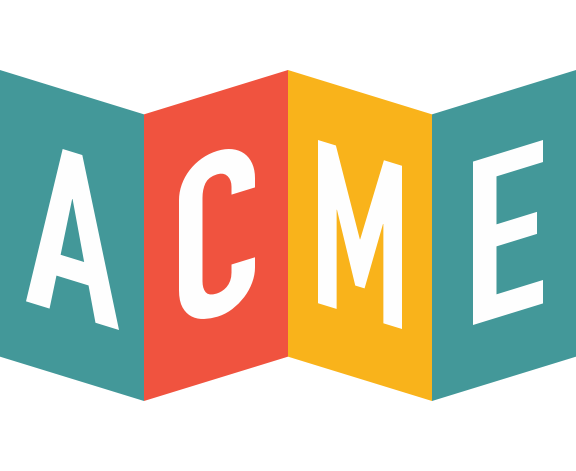
Board of Directors For Non-Profits: Basics to Forming a Great Board
Your board of directors can make or break your non-profit. Powerful and balanced leadership drives the best organizations to success, and you need people who can make big plans and decisions to fill that role for you. It’s not an easy task to find the perfect people for the job, but you can come close with some basic guidelines. We will go over what a board of directors is, what they do, and the best way to form a board of directors to see more victories at your organization.
What is a Board of Directors For a Non-Profit?
Your board of directors is a group of fiduciaries in leadership at your organization. They make choices based on their expertise in both legal and ethical decision-making, guiding your non-profit into success and sustainability. Their ultimate goal is whatever’s in the best interest of the mission of the organization. They see things that need to be done or changed and come up with a plan to tackle them.
What Does a Non-Profit Board of Directors Do?
Board members are responsible for everything from fundraising projects to business planning. The board of directors’ goals generally revolve around laying down the groundwork for other employees and volunteers based on the vision of the non-profit. This is an incredibly important job as the board of directors has a lot of power in this situation. If a member makes a series of bad choices, it could ultimately lead to major setbacks and even the end of your non-profit.
Your board of directors has a series of legal obligations as well. This is to further drive the point across that a board of directors is to make ethical decisions for the best interest of the non-profit. There are three main duties of the board of directors. The first responsibility of your board is the duty of care. Your board members have to take care of the non-profit with appropriate use of assets, which includes facilities, employees, and good will. The next is the duty of loyalty, meaning all of a board member’s transactions and activities need to align with the betterment of the non-profit. They have to report any potential conflicts of interest as soon as possible and make choices for the greater good of the non-profit, never for the personal improvement of themselves or any board member. Finally, the board must bear the duty of obedience. Your board of directors must agree that the non-profit maintains obedience to any laws relating to your organization. This also includes any bylaws or policies set out by the non-profit itself.
Responsibilities of the Board of Directors
So what specifically does a board of directors do? Much of it is what you’d expect:
- Hiring/compensation. The board of directors can’t run the organization themselves, so having oversight on hiring management is important to ensure an organization is steeped in its’ goals and values. It becomes a domino effect, your board hires like-minded management, management hires like-minded employees, and so on. Your board will also know what portion of your budget allows you to pay employees a certain amount.
- Budgeting. Since your board is handling most if not all of the financial decisions, this means it’s their job to plan out a budget. They must see to it that the budget is maintained, distributed, and makes sense with the finances they’re working with.
- Fundraising. Your board will be responsible for organizing fundraisers, accounting for and distributing funds, and coming up with ways to drive up donations. Non-profits need fundraising to survive so this is an important part of being on a board of directors.
- Mission/vision planning. The purpose of things like a mission statement is to wrap up an organization’s purpose and intent. A board of directors should be working on condensing what the essence of your non-profit is, what you strive to change, and the communities you want to help. They can also think about how to communicate that messaging throughout their organization.
- Business planning/mobilization. Knowing where to put funds and when are essential for your board of directors. Good timing and the ability to predict how things will move are excellent qualities for a board of directors to have, especially with money. It’s crucial to have people on your team who know how to tactfully distribute funds and make mindful business decisions.
How to Form a Great Board of Directors
Your board of directors should have a diverse group of leaders with unique skill sets who’re eager to help your cause. They also need to accept the financial and legal responsibilities associated with the job and have some level of comfort in making difficult decisions. Board members should fully understand the goals and values that are associated with your non-profit, showing they’ll make good decisions based on these values. Everyone needs to acknowledge their part and show readiness to be a part of a team, have excellent communication and problem-solving skills, and take initiative to help the organization on it’s mission.
What Makes a Great Member of the Board?
A positive and eager attitude is key when on a board of directors. You’ll want to have a diverse group of experienced, knowledgeable, board members, but members who are excited about what they’re involved with takes someone from a good board member to a great one. Not only do they want to help your cause, but the way they interact with people and confidently show they care about everyone around them is an amazing quality to have. Overall, a board member at your non-profit should show with their actions that they care about what they do and strive to serve their community.
Why a Board of Directors is so Important to Your Organization
A board of directors connects your non-profit with a group of experienced decision-makers, guiding your organization into success. Your board of directors should be one-half expertise and one-half passion. They should be able to get the job done right and have some level of excitement to do it, knowing they’ll be helping others with their hard work. Carefully curating your board with the right members can hugely benefit the communities you want to serve, ultimately making for a non-profit that achieves the ultimate goal: changing as many lives as possible.

